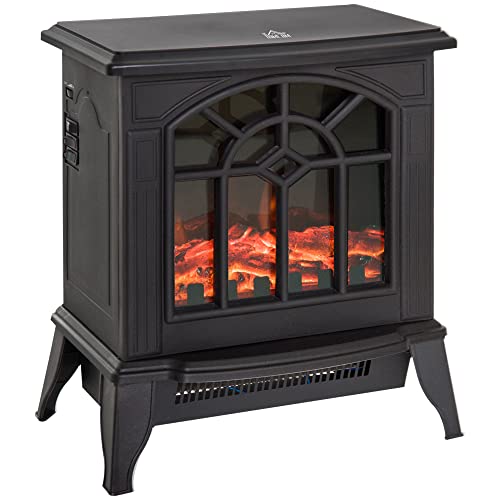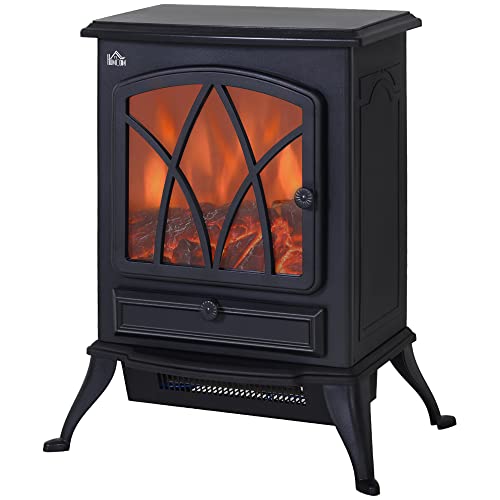Choosing an Electric
free standing electric fireplace stoves Patio Heater
Patio heaters can make outdoor gatherings more enjoyable once the weather gets colder. The best choice depends on your space and your budget. Consider whether you would prefer to use electricity or gas.
This stylish patio heater with a cylinder shape can provide enough heat for a small area. It comes with a security auto-shutoff feature, as well as straps to hold propane tanks. However, its short cord means that most users will need to purchase an extension cord with a longer length that's rated for outdoor use.
Easy to install

There are a number of different
Electric standing Fire patio heaters that stand up each with its distinctive style and features. The best choice will depend on the kind of space you want to heat and your personal preferences. Some models have adjustable heating settings, while others feature timers that shut the unit off automatically. Many models come with a remote control for easy operation. To ensure the safety of your guests, you should also select one with essential security features like automatic shut-off or tip-over safety.
A propane heater is among the easiest options. It requires no assembly or installation and can be moved easily to the location you wish to heat. The downside is that it needs an 20-pound propane tank, which can be expensive. The propane heaters also release large amounts of heat within circles, which means they are not the best option for large areas.
Another alternative is to use an
modern electric fire freestanding heater, which can be mounted on a wall or a freestanding design. These heaters come in a wide range of designs and finishes, and can be customised to match your decor. They are also energy-efficient and quiet, meaning they won't bother your guests. They're also non-odorous and require no maintenance. However, you should be aware that they're not as effective as a gas-powered patio heater.
If you prefer to mount your heater on a wall, make sure that it is made of an extremely durable material. Stone is the best choice because plastic deforms at high temperatures. Make sure that your wall is minimum of 14 inches from the combustibles.
A hanging patio heater is a popular option. It has a more sleek look than other models. These are ideal for small spaces and small seating areas. They are also ideal for patios enclosed by a canopy or roof. Be sure to check the IP certification prior to purchasing a hanging heater.
Heats up quickly
Patio heaters emit infrared heat unlike space heaters which blow hot air through coils. This energy emits in the form of heat that quickly warms objects and the people in the area. These heaters can be gas or
retro electric fireplaces and are generally making use of propane fuel or natural gas. Electric models are the best choice for those with a tight budget. Gas-powered patio heating units are more expensive, but they can be used in a variety of different settings.
Consider the size of the space you wish to heat and the number of people will be sitting there before deciding on a patio heater. To determine the amount of heat you'll need you need to multiply the outdoor space by 20. Think about a patio heater that is wall-mounted or ceiling-mounted for larger spaces. This can provide a more evenly distributed heat.
Another crucial aspect to take into consideration when choosing the right patio heater is its safety features. The stand-alone heaters must be set on a level surface to avoid falling over, and should never be covered while being turned on. They should also be kept away from flammable objects and should not be left in the reach of children. In addition, they should be kept clear from any power or electrical cords, as they could become a fire hazard if they come in contact with them.
A great way to ensure you're making the safest choice for your outdoor heater is by reading the instructions provided by the manufacturer attentively. Keep a fire extinguisher that is working close by and ensure it's well maintained. Lastly, remember that it's always advisable to install a patio heater in a well-ventilated area.
Although it's tempting to purchase a patio heater and leave it out in the rain, you should always bring it inside when it's not in use. You shouldn't leave them outside as they could cause water damage and even create the risk of fire. In addition, they may require maintenance from time to time and you may have to replace the wicks or other parts.
Aesthetically pleasing

A quality patio heater will keep you warm during cool weather. To determine which type of heater is suitable for your space, think about the size of the area you wish to heat and the climate conditions. For instance, if live in an area with frigid temperatures, you might require a heater that has a large BTU output or has an extensive coverage area. If your outdoor space is a smaller size and a model with less power may be sufficient.
Some of the best outdoor heaters feature a classic, design-oriented appearance. The Lava Heat Capri Aline heater, for instance is 6 feet tall and has a pyramid design that resembles infrared lights that are found in upscale hotels. It also has 360-degree infrared heating that can keep a large area warm. It is simple to set up and comes with a rustproof bronze finish, making it the perfect option for an urban apartment.
Another option is a propane heater, which can be purchased at the gas station or a convenience store. These heaters utilize 20-pound propane tanks that produce a steady stream of warmth. These heaters are able to be refilled. While they don't produce as much heat as electric models propane heaters are affordable to purchase and use.
Electric patio heaters are an excellent option if you're searching for a less expensive alternative. They plug into regular outlets, making them simpler to install than other types of patio heaters. Some models include an integrated thermostat that allows you to save energy by turning off the heater at predetermined intervals. However electric heaters are typically less powerful than their propane counterparts, and require more energy to run.
There are also several types of patio heaters that run on natural gas or propane. These heaters require a permanent install and will require connection to gas pipes. The downside is you will have to refill or change the fuel regularly.
No matter what type of patio heater you pick ensure that they are safe and properly maintained. For instance freestanding patio heaters must be weighed and placed on level ground to avoid them tipping over. They should also be kept away from fire-prone items and should not be placed in areas where pets or children may be in danger of getting too close.
Safety features
Patio heaters help keep outdoor spaces warm however, they can also be risky if not used correctly. Patio heaters are equipped with security features like flame failure devices and tip-over switches. These features ensure that the heater can be safely shut off when it is knocked over or disturbed by wind or any other cause. Some patio heaters can be moved around, while others are permanent fixtures for decks and other outdoor spaces. Some patio heaters come with an inbuilt propane tank while others can be hooked up to an existing gas supply.
There are a variety of factors that affect the safety of patio heaters, in addition to the fuel type. Propane is safer than natural gas since it does not produce fumes. In addition propane heaters can be anchored or weighted down, which can prevent them from tumbling and causing fire danger.
However, if you choose to use an electric model, it's essential to follow the manufacturer's instructions to ensure safe operation. Always stay close to the unit when it's in use and keep it away from any flammable objects or fabrics. Don't use it in a space that is partially enclosed such as a covered patio because it can release dangerous carbon monoxide.
It is important to check your patio heater on a regular basis for signs of damage or wear and tear, regardless of the type you choose. Make sure the cord isn't damaged or frayed. Avoid touching it with wet fingers. If you reside in an area that is prone to strong winds, consider anchoring or weighting your outdoor heater. This will decrease the risk of it shifting, or even falling over and causing injuries to family members or friends.
If you're in search of a propane patio heater or an electric model it's important to take into consideration your budget and needs when choosing the best heater. The best way to safeguard an investment is to take good care of it. Follow these steps to ensure that your patio heater lasts and will provide years of comfort and pleasure to you and your family.

 There are a number of different Electric standing Fire patio heaters that stand up each with its distinctive style and features. The best choice will depend on the kind of space you want to heat and your personal preferences. Some models have adjustable heating settings, while others feature timers that shut the unit off automatically. Many models come with a remote control for easy operation. To ensure the safety of your guests, you should also select one with essential security features like automatic shut-off or tip-over safety.
There are a number of different Electric standing Fire patio heaters that stand up each with its distinctive style and features. The best choice will depend on the kind of space you want to heat and your personal preferences. Some models have adjustable heating settings, while others feature timers that shut the unit off automatically. Many models come with a remote control for easy operation. To ensure the safety of your guests, you should also select one with essential security features like automatic shut-off or tip-over safety. A quality patio heater will keep you warm during cool weather. To determine which type of heater is suitable for your space, think about the size of the area you wish to heat and the climate conditions. For instance, if live in an area with frigid temperatures, you might require a heater that has a large BTU output or has an extensive coverage area. If your outdoor space is a smaller size and a model with less power may be sufficient.
A quality patio heater will keep you warm during cool weather. To determine which type of heater is suitable for your space, think about the size of the area you wish to heat and the climate conditions. For instance, if live in an area with frigid temperatures, you might require a heater that has a large BTU output or has an extensive coverage area. If your outdoor space is a smaller size and a model with less power may be sufficient.